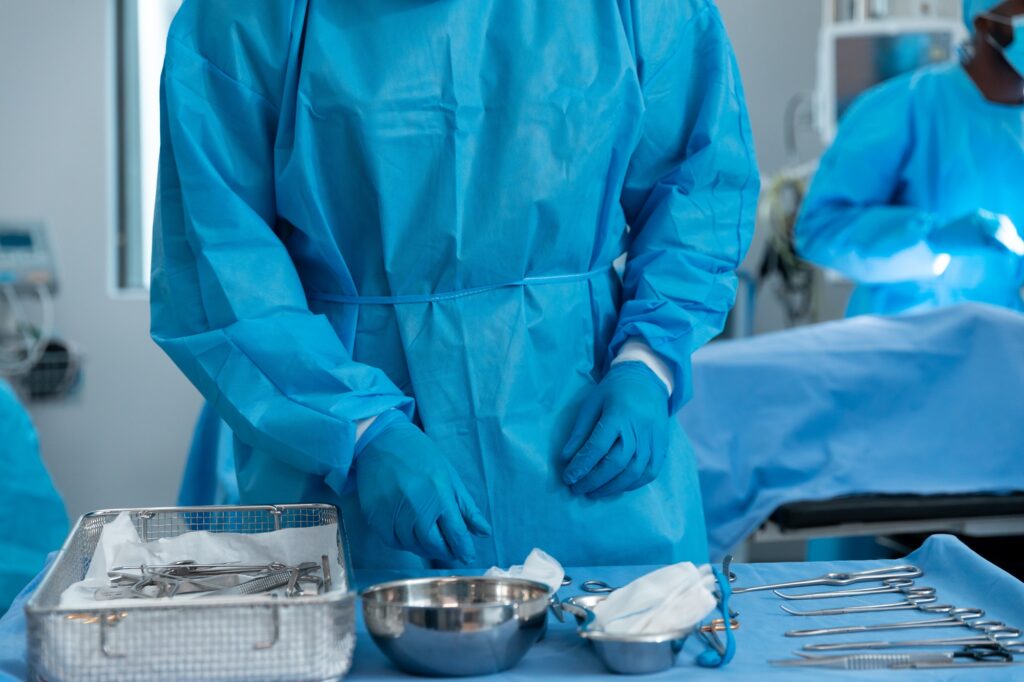“Do clothes make the doctor?” is a recent article in a local paper. Author Elisabeth Dreesen works as a surgeon at UNC Chapel Hill. She writes about the appropriateness or not of the way of dressing up by residents in her department. She concludes:
“We live in a world of brief encounters. ………we need to manufacture trust, …Our clothes are part of how we do it. They are more than fashion statement. They are one of our tools.”
I grew up and was trained in a cosmopolitan Department of Surgery in Warsaw Medical School. It used to be called a “travel agency” since we were being awarded with the scholarships abroad. My professor was educated in Mass General and whatever was happening there – was a golden standard. He even had a small can of air from Boston on his shelf. Since all physicians in Boston were wearing ties, we had to do the same (he was wearing a bow tie). We didn’t like it that much, but had to comply. It came down to the point, that we hung a tie on his door frame in the entrance to his office. Whoever had to see him only needed to put this tie on.
In my early years as a junior assistant, I was asked to help him with lectures. One of my functions was to prepare slides for the lectures for medical students. In the local paper I found a very appropriate cartoon showing two bricklayers building the wall. One of them was wearing a tie and “somehow” his piece of garment got entangled between rows of just put down bricks. The caption was “How many times I have to tell you not to wear a tie to work!” This slide was included in a didactic presentation without my professor’s knowledge. I thought it was funny, but he didn’t. I got replaced by my colleague.
During my fellowship in Charlotte, NC our attending were dressed in three pieces suits. One of them had so many of them, that I never saw him twice in the same one. Every Christmas, we receive gifts. There were, you guessed, suits tailored to measure.
Then we moved to California and everything has changed. Not infrequently, I saw my colleagues making rounds in shorts. We were much more relaxed there.
Clothes are a very potent communicator. By the way we dress, we can express ourselves, like we often do with cars and houses. And in this country, the possibilities are endless. We do control what we put on ourselves and have to be aware of the type of message we project.
We are in the service business. What others call customers, we call patients. The first impression on our patients is critical because if not good, there may not be another one. If it doesn’t go this far, other people, be it current or even potential future patients, will hear remarks which we may not like. A certain level of decorum must be observed. We can project positive and negative impressions. Distraction caused by the way we dress should be minimized.
There is always a question, whether my dressing inappropriately or extravagantly makes me a bad doctor. Then there might be cultural differences. And yes, there were studies done on that topic. One was published in The British Journal of General Practice. It showed, that for 64% of patients it was important or vital the way doctors dress. For me is interesting, that for the other 36% was not. There is another study, this time from the US, published in the American Journal of Medicine. For 76% of the diverse group people investigated, a white coat was the proper attire, whereas for 10% scrubs were preferred. It was also more important for women doctor to look appropriately, than for men.
But even the best impression created by the doctor can be ruined by the appearance of front office personnel. They are the people creating really first impression.
The way our patients see us is significant. Clothes are an effective way to communicate our message and authority. In my practice, it was always a way to show a respect to the patient. They in turn are more likely to follow your instructions and see you again. In addition for me as a surgeon, it was a way to convey, that I will be as neat during operative procedure as the way I dress.
But all this is important only in a case when you have a free choice of physician.
Related articles
- Do Clothes Make the Man (Woman)? (bonniemccune.com)
- The Advantages of Dressing Appropriately In the Workspace (anofficebrief.wordpress.com)


